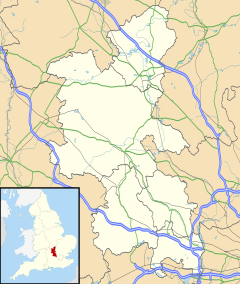Lillingstone Lovell
| Lillingstone Lovell | |
|---|---|
 Parish church of the Assumption |
|
| Lillingstone Lovell shown within Buckinghamshire | |
| Population | 129 (2011 Census) |
| OS grid reference | SP7140 |
| Civil parish |
|
| District | |
| Shire county | |
| Region | |
| Country | England |
| Sovereign state | United Kingdom |
| Post town | BUCKINGHAM |
| Postcode district | MK18 |
| Dialling code | 01280 |
| Police | Thames Valley |
| Fire | Buckinghamshire |
| Ambulance | South Central |
| EU Parliament | South East England |
| UK Parliament | |
Lillingstone Lovell is a village and civil parish within Aylesbury Vale district in Buckinghamshire, England. It is located around 4 miles (6.4 km) north of Buckingham and 8 miles (13 km) west of Milton Keynes, and around 5 miles (8 km) south of Towcester in the neighbouring county of Northamptonshire.
The parish adjoins that of Lillingstone Dayrell with Luffield Abbey. The toponym "Lillingstone" is derived from the Old English for "Lytel's boundary stone", referring to the proximity of both places to the Northamptonshire boundary. At the time of the Domesday Book in 1086 both settlements were recorded jointly as Lillingestan, though at that time there were already two manors owned respectively by the Dayrell and Lovell families. During the 13th century Lillingstone Lovell was known as Lillingstone Magna while Lillingstone Dayrell was recorded as Lillingstone Parva; this is believed to refer more to administrative ascendancy rather than territorial size. The adoption of the "Lovell" name came later, probably in reference to the lordship of the manor by the Lovell family line which died out in the early 14th century.
Unlike its neighbour, Lillingstone Lovell was a detached portion of Oxfordshire under the control of the royal manor of Kirtlington, valued for its woodland and hunting being part of the ancient Whittlewood Forest. It was transferred to Buckinghamshire under the Counties (Detached Parts) Act 1844.
...
Wikipedia

